In the ever increasingly competitive world of electronic music, it takes a special set of skills and an even greater man to harness them in order to maintain a career full of highlights. Trommel caught up with one of the major players in the Portuguese house and techno scene João Maria as he lays bare his 20+ year career from his first forays into the London club scene to throwing free label showcases in Lisbon and everything in between.
Congratulations on your 20th year in the DJ business Joao, where did you start your journey?
Thanks very much! It doesn’t seem like 20 years at all.
My journey… Well, I used to live in Faro, my hometown, and my first active role in music was singing in a punk rock band. My life at the time was all about the band, skating and surfing. As I wasn´t really into school and got held back, my parents suggested I went to London to do an English course. I ended up staying there for 5 years.
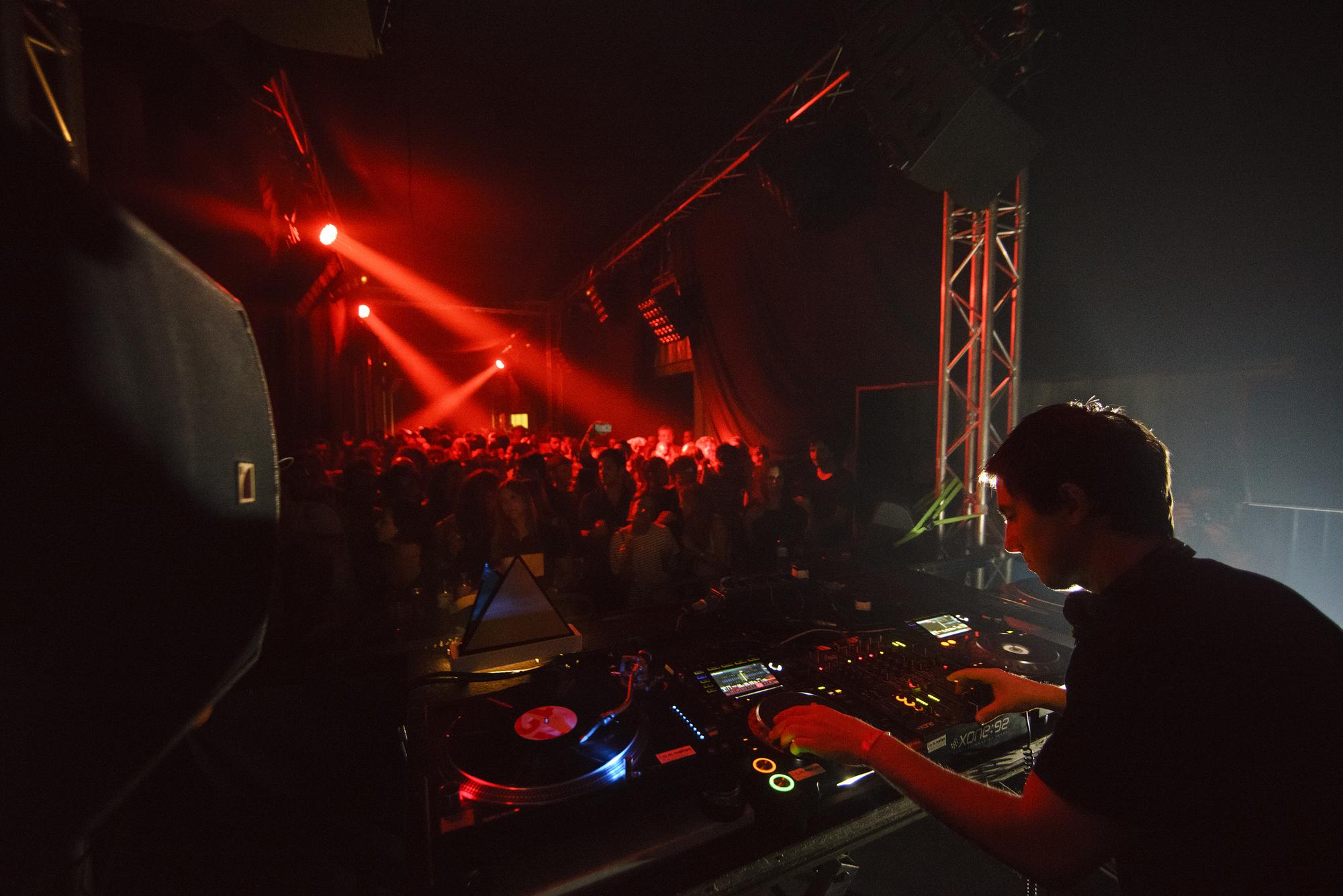
When I arrived, I met some people who were really into electronic music and started clubbing regularly. In 1997, Daft Punk were doing the Homework tour and I went to see their show in London. My perspective on music completely changed and that´s when I started buying my first vinyl records, mostly breakbeat, hip hop, and electro. Later that year I met a Spanish DJ called Barbi, we became good friends and at this point, I really got into House and Techno. After this, I convinced my brother to buy some turntables with me. That´s when it all started.
In 1999, I landed my first residency in London at Brick Lane´s Coffee 1001. Besides the residency, I also played a lot of warehouse and house parties, and a few gigs in Portugal when I came over for holidays. In 2002, I returned to Portugal for good and a few important Portuguese clubs started booking me regularly. In the Algarve, Kadoc was a keystone for me. Owner and founder of Kaos records, and a pioneer of the Portuguese rave and clubbing scene in the 90s, António Cunha, who has sadly passed away, was doing some of the most iconic parties at Kadoc and I was really lucky to have his support, playing a lot of his events. Line ups at the club would include people like Jeff Mills, François Kevorkian, Derrick Carter, Laurent Garnier, Joey Beltram, Kenny Larkin, Plastikman, Derrick May, Green Velvet, and many more; and some of the best Portuguese DJs, such as DJ Vibe, Jiggy, Luis Leite, António Cunha, Rui Vargas, XL Garcia and Wla Garcia, Zé Mig-L, A.Paul, Del Costa, Zé Salvador, among others. Also vital to me as a DJ were Industria and Maré Alta After Hours in Porto, and Europa After Hours and Lux Frágil in Lisbon.
However, from an early stage I understood I wasn´t going to make a living from just DJing, so in 2007 I left the Algarve and moved to Lisbon willing to try new things in the music industry.
How have you seen the Lisbon and the larger Portuguese scene grow over the years?
I´m now 42 and believe I belong to a third generation of House and Techno DJs in Portugal. The 90s were really a highlight with a full-blown scene promoting loads of raves and parties, and everyone really pushing the music. DJ Vibe, XL Garcia, Rui Vargas, Zé Mig-L, A.Paul, Zé Salvador, Pedro Ricciardi, Tó Ricciardi, Jiggy, Luis Leite, Nuno Cacho, X-man, Model 9000 were some the heads of this golden era. I came on to the scene towards the end of this period, but still lived a lot of great moments.
But then the scene and the music went weird. Big clubs closed and some reopened with new directions. House and Techno only started slowly reappearing after quite a while through small promoters, as most of the clubs were clearly focused on other things. One of the clubs that never gave up and played a pivotal role on the Portuguese electronic music scene was Lux Frágil, in Lisbon, which is still going strong today. In Porto, Gare has probably been the most important club promoting Techno in Portugal in the last decade. Later on in 2012, Ministerium also helped revive the scene in Lisbon with great local and international line ups. Besides all this, the enormous amount of talent in Portugal keeps driving the scene further.
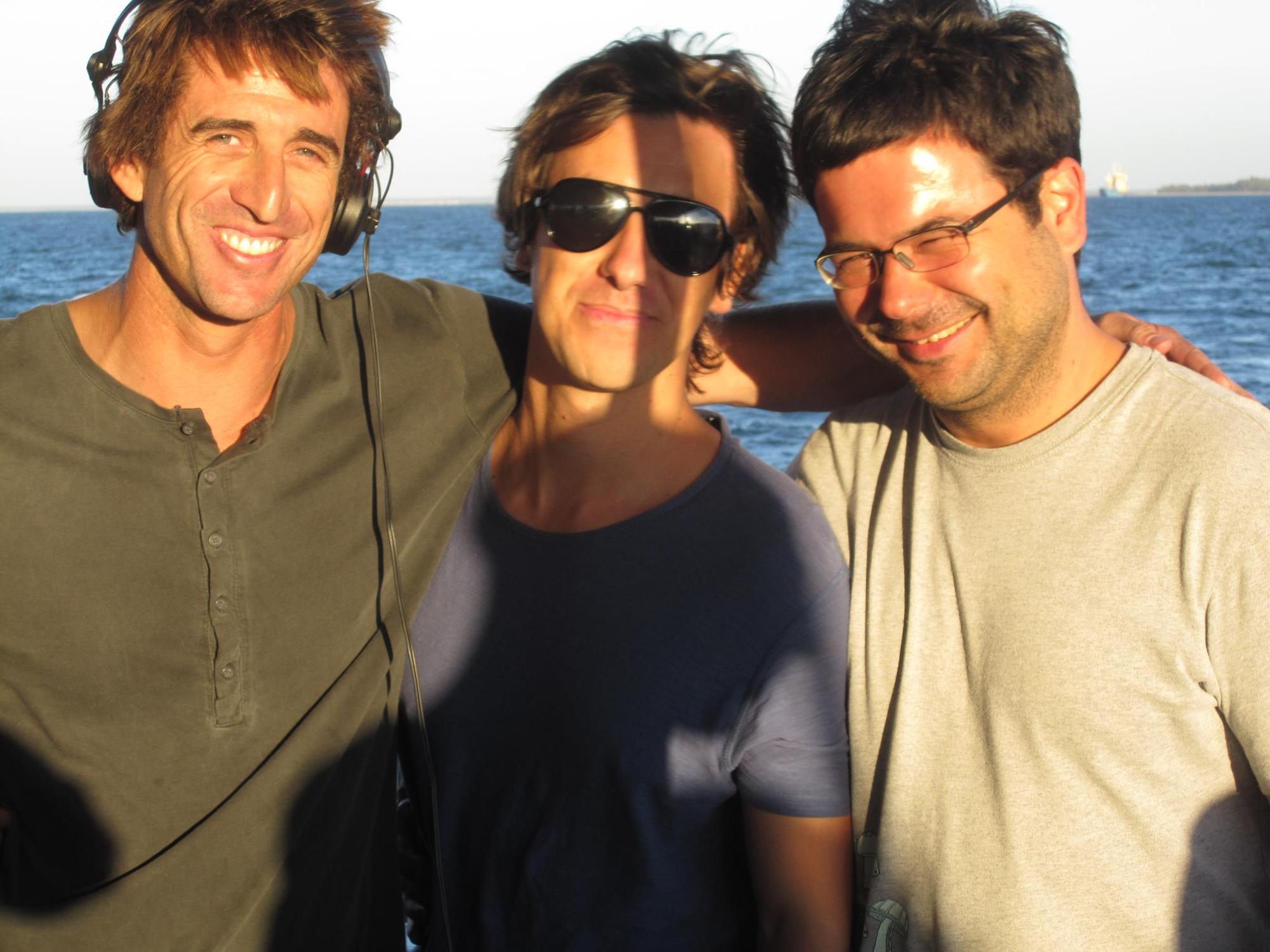
Do you see all the jobs you now do as a natural progression? Or did you really push yourself hard to take on all these roles?
It was certainly a natural progression for me, as I knew from an early stage that I didn´t want to make a living from DJing alone and have always been motivated to work in various areas of the music industry. The first step was promoting my own parties, which gave me a new outlook on things and got me involved with international bookings. After a while, I was invited to take care of electronic music bookings for a few festivals, such as Sudoeste and SBSR, then for Ministerium Club, and later on for festivals Lisb-ON Jardim Sonoro and Lisboa Electronica. Somewhere along the way, I founded a record shop called Carpet & Snares with Jorge Caiado and Ze Salvador, and although I´m no longer involved in that project, I´ve recently opened a new shop called Collect. I also had my own show on Radio Oxigénio for a few years, which was a great experience. Labels also started being a part of my life. I run Assemble Music, my pet project that has now completed 8 years of existence and I manage Ministerium Records as a result of my work at the homonymous club. Both are distributed by Off The Grid Distribution owned by my good friend Federico Benedetti aka Onirik.
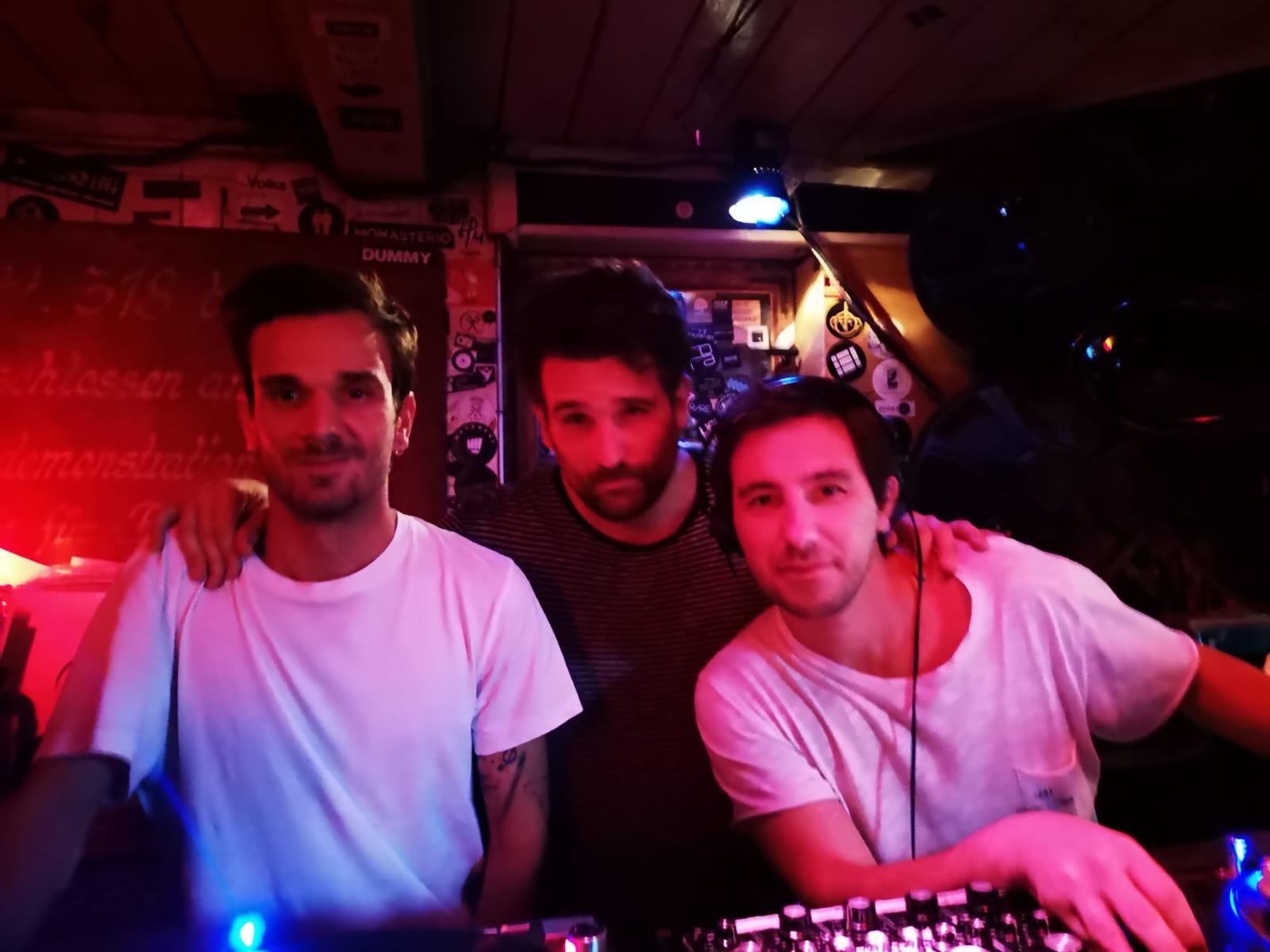
How do you respond to comments that Lisbon and Portugal in large is just “emerging” as a viable clubbing hotspot?
In my opinion, it´s emerging internationally, but the scene has always been here and healthy in its own measure. The culture of electronic music arrived with a bang in the 90s and although there was a down period at the beginning of the millennium, it´s never left since. We have great festivals and clubs, and an enormous pool of talent that people are now discovering across borders, but that doesn´t mean they weren´t here before.
Is there something that you feel Lisbon/Portugal offers that no other Euro city offers the clubbing world?
Portugal isn´t very big, so you can move around easily. The weather is great, the food is amazing and people are mostly welcoming and warm. Lisbon specifically has a great geographical situation. It´s a capital city but was built overlooking the river Tagus and is only 20 minutes away from some amazing beaches. You can go clubbing and then eat fish on the beach, which is quite rare outside an island setting. Also, the prices are still quite accessible.
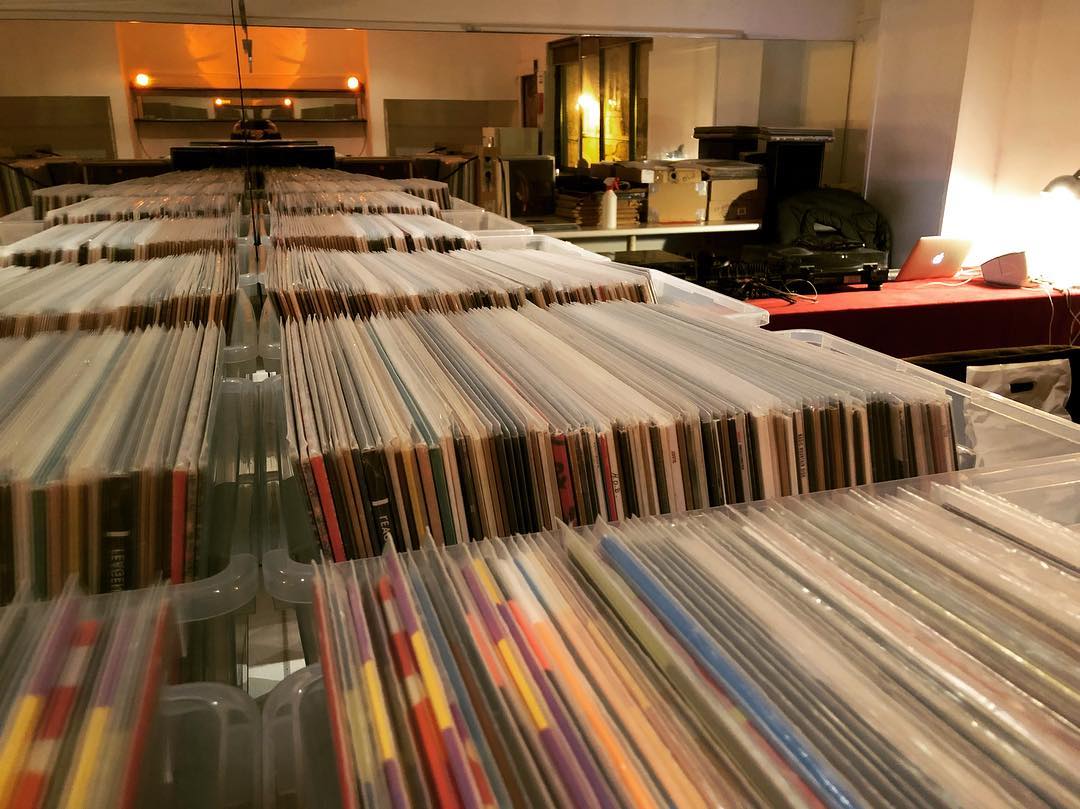
You have also just celebrated 8 years of Assemble Music, how has the journey been so far?
Assemble Music was founded in 2011 together with Miguel Neto, a really good friend. Label´s first record came out in 2012. I´ve always imagined my label as I imagine my record collection so choice isn´t defined by hypes, trends, and I´ve always aimed to work with artists that I look up to and are musically true to themselves. Within house and techno, I´m completely open to all its variations and sub-genres, opening the label´s universe. Our catalogue includes the AS (Solo Eps) and the ASB (Various Artists Mini Compilations), and we´ve already released 21 Solo EPs and 3 Mini Compilations. I´m really happy and proud of the work we´ve done in these 8 years. It has all been possible thanks to the collaboration of the amazing artists such as Daze Maxim, Dorian Paic, Vera, Ricardo Villalobos, Maayan Nidam, Baby Ford, Norken, Altitude, Studio 1, STL, Hakim Murphy, Activ-Analog, Aubrey, Peter F. Spiess, St. Joseph, Lerosa, Patrick Specke, Desert Sky aka Edward, Enrico Mantini, Mike Shannon, Dan Andrei, Seuil, Robin Ordell, Reedale Rise, Onirik, Voigtmann, Martinez, Markus Sommer & Felix Kluge, Barbir, Martyné & Jacob, Nicola Kazimir, Vid Vai, Ion Ludwig, and many others to come very soon!
Besides releasing records, which is the label´s main focus, Assemble Music also puts on a few showcases throughout the year. These parties are called Assembling and have taken us to a few cool places like Salon Zur wilden Renate and Club der Visionaere in Berlin, the Off Week playing for Checkpoint in Barcelona, Paris with a collaboration with CrazyJack and the Womb Club in Tokyo. In Lisbon, during Summer months, the Assembling parties happen at Ribeira das Naus, an amazing outdoor spot right on the river bank. In the winter, we take refuge in a warehouse downtown. This summer we´ve been invited by Gosu to play a showcase at Robert Johnson on the 12th of July, Club Der Visionaere on the 25th of June and more will certainly happen soon.
What were your reasons for setting up the label?
I´ve always loved collecting records, in certain cases, I´d get the whole catalogue of some favourite labels. So I got to a point where I thought it would be cool to be on the other side, releasing records curated by myself for others to collect. The AR work, finding artists that fit the label and going through the whole process until the record is released is also something I´ve enjoyed from the start. And that´s how Assemble Music appeared and is still going 8 years later.
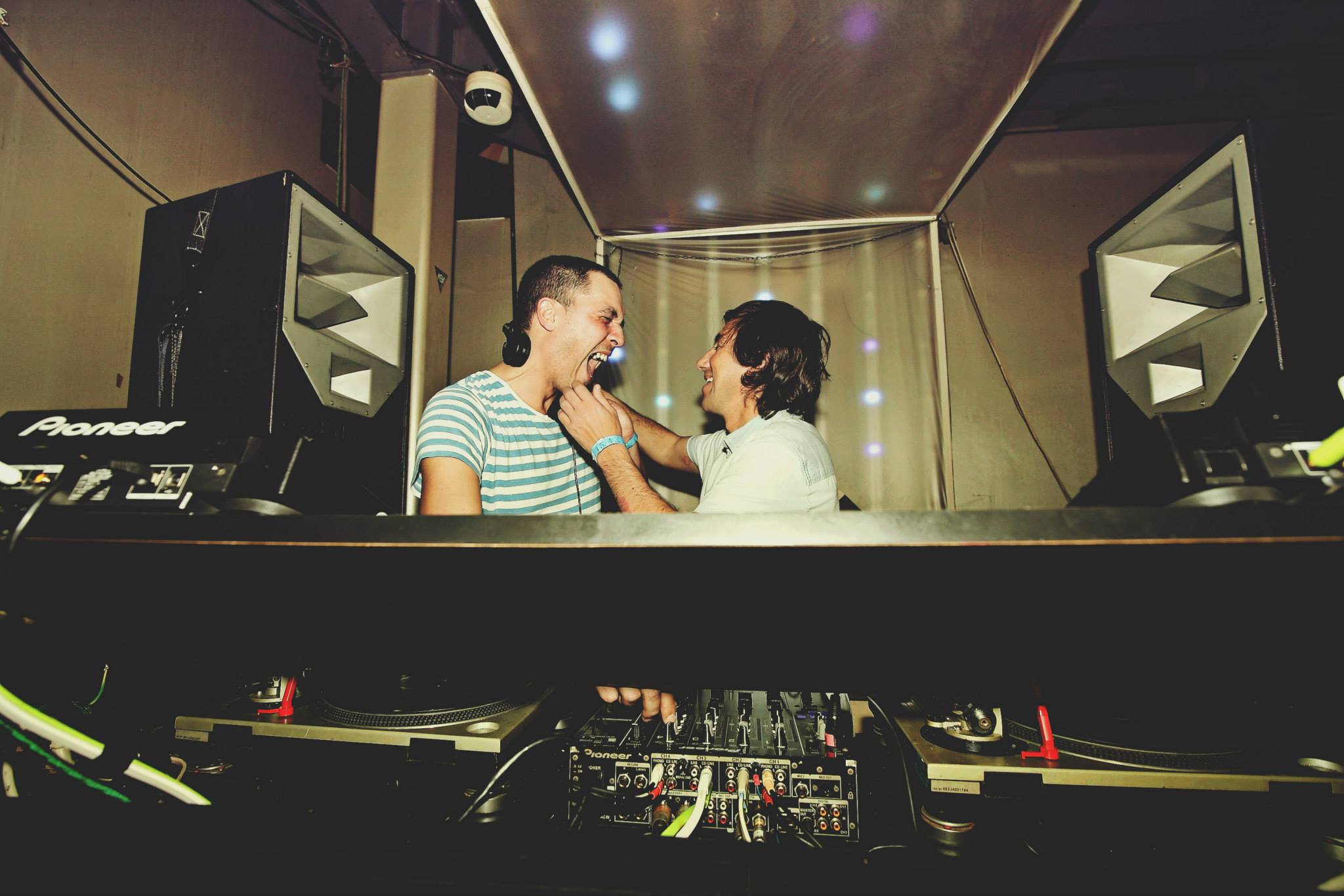
How important is it that you use this as a platform to showcase the city’s talents?
In terms of record releases, I don´t focus on Lisbon, I look for what I like in the widespread scene. As Assemble Music´s catalogue reveals, the artists we work with come from all over the world. The Assembling showcases however always include local friends and talented DJs like Mary B, Miguel Neto, Diogo Lacerda and more.
Tell us about your new project Collect? What were your reasons for setting this up?
Created by myself, my brother Bernardo and Mariana (aka Mary B), Collect is a project with three distinct operations: record shop, online radio & food. I really thought Lisbon needed a record shop that sold mostly second-hand stuff for House and techno, which is what I look for when I travel, so I´d been thinking about that for a while. The online radio has also been a goal of mine, a platform to promote local talent, label launches and new releases, and invite key figures of the industry to talk about relevant topics. We´ll also be inviting international artists who are visiting the city to come and play a set for us or have a chat. At the moment only the record shop is open but we’ll be changing location in July/August and inaugurating the radio and food bar.
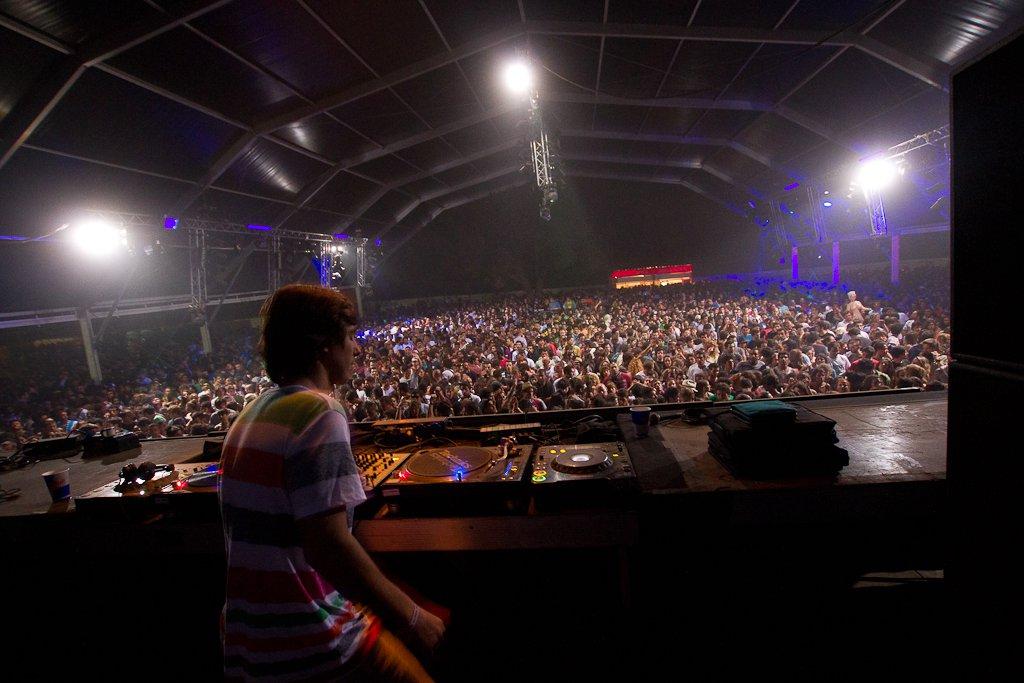
You have just released details of your free party series; how did you decide who you would be booking?
These free parties happen with guest artists who have released on the label or are somehow associated to Assemble Music, either by friendship or because their music matches our taste. Normally artists from abroad come for the gig and also spend a few days in Lisbon, hanging out and getting to know the city.
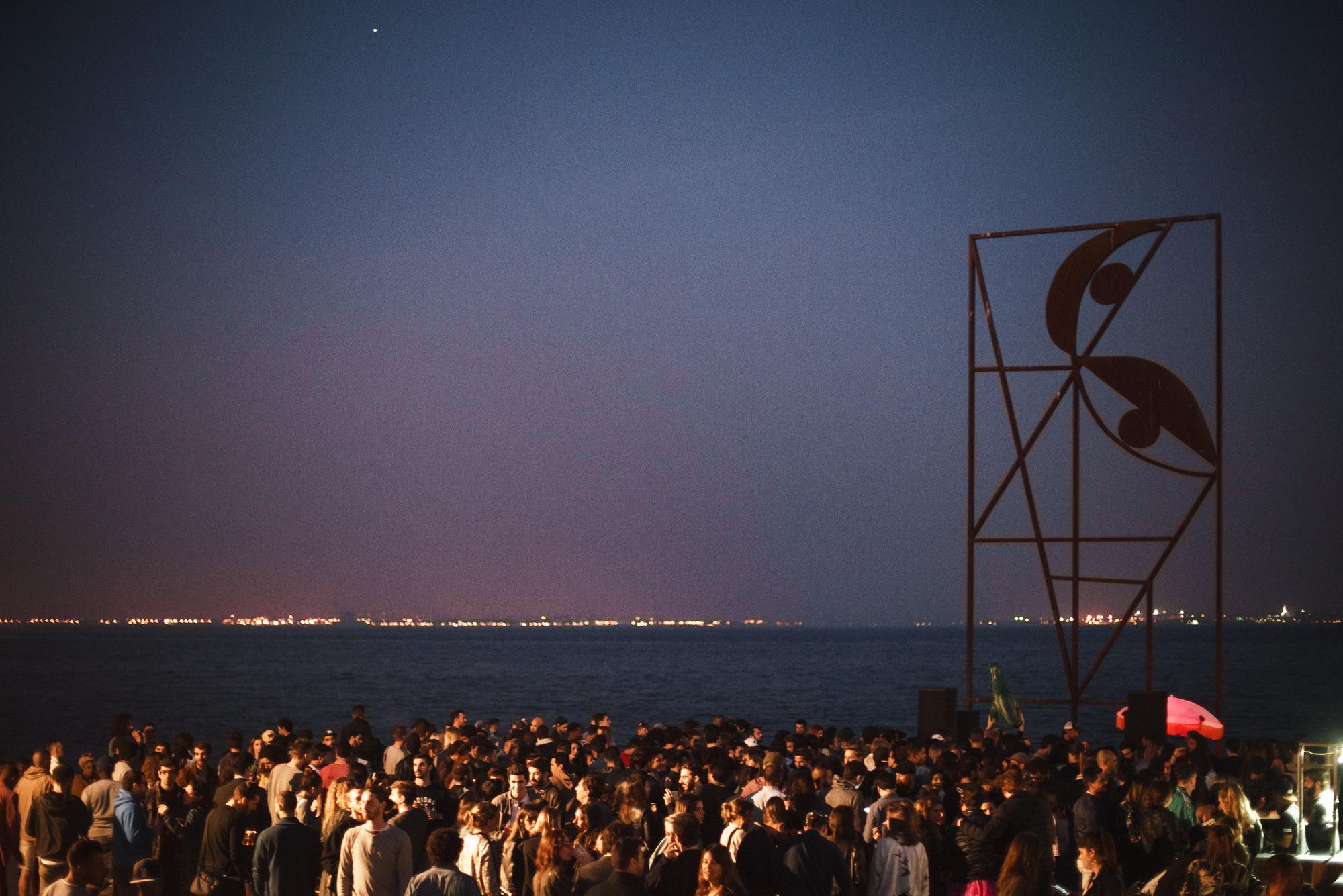
What was the reasons for making these parties free?
The free parties came about because some friends of ours have a kiosk right on the bank of the river Tagus, a magical spot called Quiosque Ribeira das Naus, and knowing what we do challenged us to put on a monthly Assembling showcase during summer months, with both Portuguese and international artists. The budget is limited as it happens in a public space and no admission fee is charged but we still manage to put together some really cool line ups. This summer we´ve already booked all the headliners, Bruno Schmidt, Markus Sommer, Aubrey, Voigtmann, Onirik and Reedale Rise Live. The events are great for the city as a cultural event, and always have great attendance and a killer vibe. Parties usually bring around 400 to 500 people and happen from 5pm to 11pm. This is already the 4th edition of Assembling Ribeira das Naus and we hope it will continue for years to come.
Event | FREE entry
More info on Assemble Music:
Discogs | Soundcloud | Instagram | Facebook | Youtube
More info on Joao Maria:
Discogs | Soundcloud | Instagram | Facebook
More info on Collect:
Instagram | Facebook
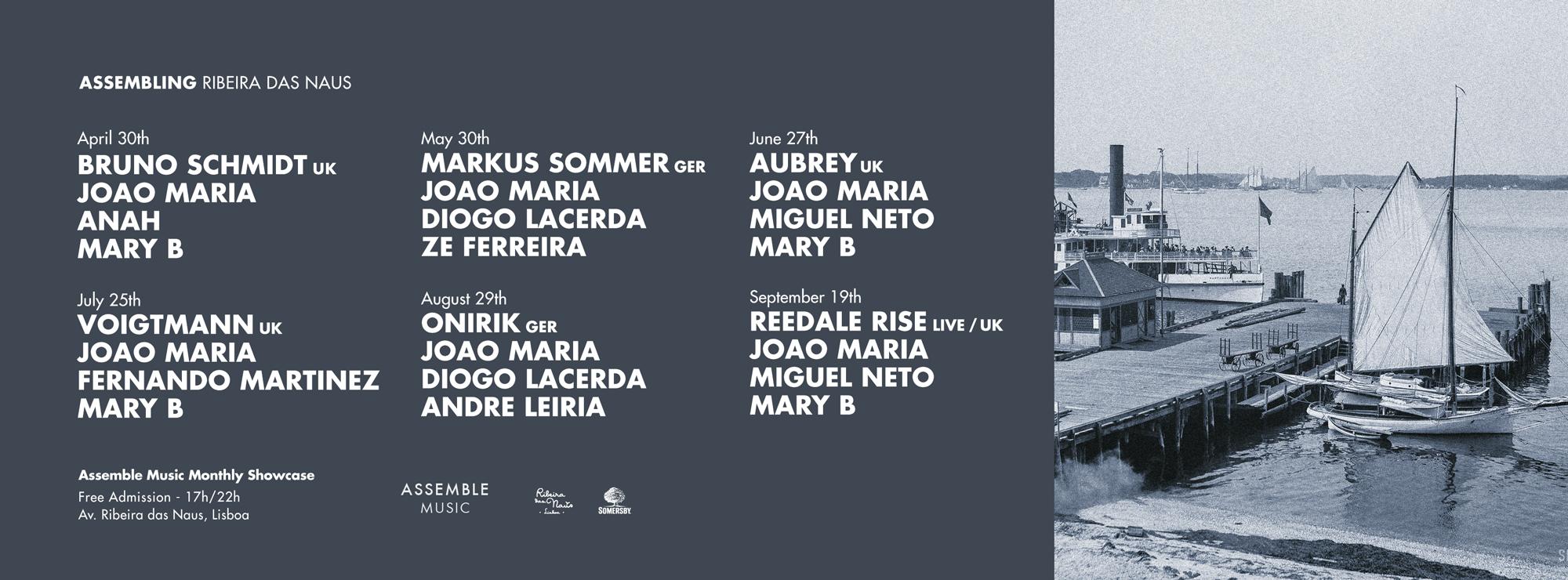



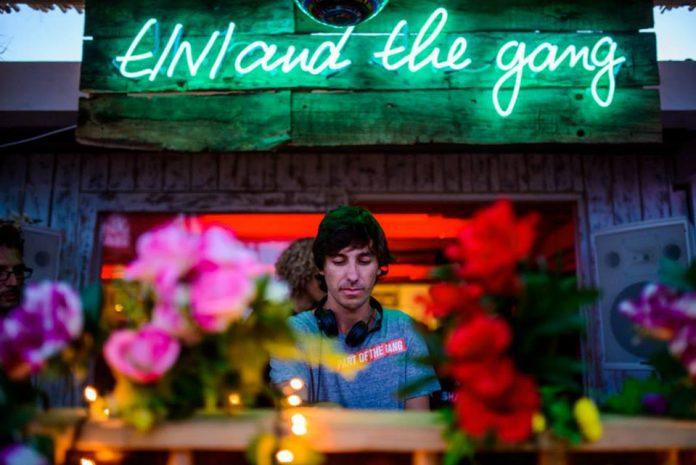
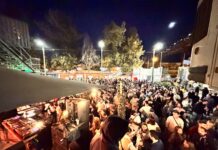
![Premiere: A1 – sshadess – Discoteka [domesticated006]](https://trommelmusic.com/wp-content/uploads/2023/03/fgjghjgjghjfgjfghj-Darko-Lisen-218x150.jpg)
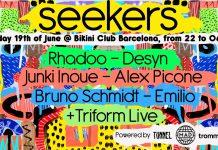
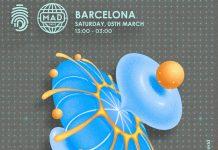
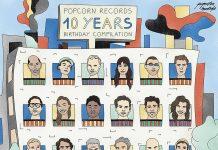
![Premiere: A1 – Dopium Tribe – Rear-wheel-drive [DOPIUM001] Dopium Tribe artwork](https://trommelmusic.com/wp-content/uploads/2021/05/DOPIUM001-Federico-Benedetti-218x150.jpeg)
![Premiere: A2 – mrelss – Season of Reason [AMAM044]](https://trommelmusic.com/wp-content/uploads/2026/02/label_side_A-Alessio-Mereu-324x235.jpg)
![Premiere: 2 – Santon – Only a Test (Alain de Saracho Remix) [SDR012]](https://trommelmusic.com/wp-content/uploads/2026/02/Santon-Only-a-Test-EP-Artwork-Alain-de-Saracho-100x70.png)
![Free Download: Zombies in Miami – What Ya Doing [TFD128]](https://trommelmusic.com/wp-content/uploads/2026/02/photo_2026-02-12-10.38.24-e1770892750337-100x70.jpeg)
![Premiere: 1 – DAT (Italy) – Not My Plan [SENS001]](https://trommelmusic.com/wp-content/uploads/2026/02/IMG_9750-Sensazione-Stupenda-100x70.png)
![Premiere: B1 – Kolhida – Break And Escape (Cezar Lazãr Remix) [TTM003]](https://trommelmusic.com/wp-content/uploads/2026/02/IMG_2883-Aleksandr-Gocheleyshvili-100x70.png)
![Premiere: A1 – JJ Fortune – Design [LNS10]](https://trommelmusic.com/wp-content/uploads/2026/02/1188556-100x70.jpg)
![Premiere: A1 – Alexander Skancke – Saga Of Subvision [QRK015]](https://trommelmusic.com/wp-content/uploads/2026/02/photo_2026-02-03_17-31-24-100x70.jpg)

![Premiere: A1 – Light Blue File – JUNIOR [RCR002]](https://trommelmusic.com/wp-content/uploads/2026/02/RCR.002.FRONT_.LABEL-Will-Gilliland-100x70.png)
![Premiere: A2 – Lisovskyi – Just One Good Whiff [FIB004]](https://trommelmusic.com/wp-content/uploads/2026/02/B-100x70.png)